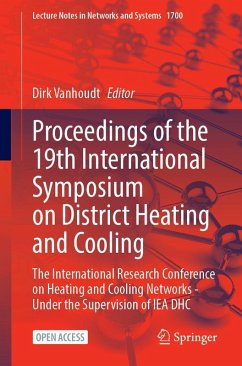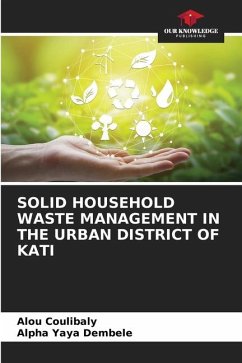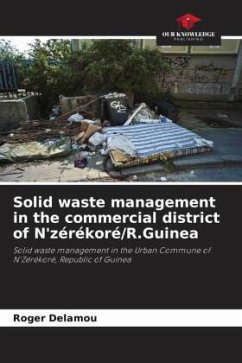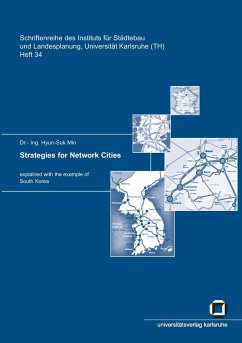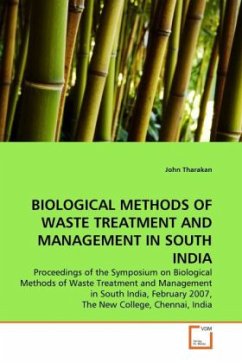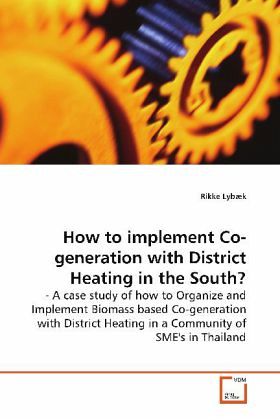
How to implement Co-generation with District Heating in the South?
- A case study of how to Organize and Implement Biomass based Co-generation with District Heating in a Community of SME's in Thailand
Versandkostenfrei!
Versandfertig in 6-10 Tagen
52,99 €
inkl. MwSt.

PAYBACK Punkte
26 °P sammeln!
This research project seeks to discover how developing ''hot'' countries can benefit from highly efficient and mature technologies presently implemented in countries in the North. In order to combat climate change, developing countries also need to adobt to more efficient renewable energy technologies in the future. Thus, biomass based co-generation with supply of district heating is a favorable technology, as it generates both power and heat, and enables distribution of the latter to industries or households etc.This study reveals where and how to implement such efficient energy technologies ...
This research project seeks to discover how
developing ''hot'' countries can benefit from highly
efficient and mature technologies presently
implemented in countries in the North. In order to
combat climate change, developing countries also
need to adobt to more efficient renewable energy
technologies in the future. Thus, biomass based co-
generation with supply of district heating is a
favorable technology, as it generates both power and
heat, and enables distribution of the latter to
industries or households etc.
This study reveals where and how to implement such
efficient energy technologies in ''hot'' countries in
the South, where the heat demand is limited. This is
done by emphasing on an energy system development in
a case area in Thailand; Navanakorn Industrial
Promotion Zone.
The contribution from the research study is
a ''Guideline'' of how to implement such projects in
Thailand, or in other countries in the South.
developing ''hot'' countries can benefit from highly
efficient and mature technologies presently
implemented in countries in the North. In order to
combat climate change, developing countries also
need to adobt to more efficient renewable energy
technologies in the future. Thus, biomass based co-
generation with supply of district heating is a
favorable technology, as it generates both power and
heat, and enables distribution of the latter to
industries or households etc.
This study reveals where and how to implement such
efficient energy technologies in ''hot'' countries in
the South, where the heat demand is limited. This is
done by emphasing on an energy system development in
a case area in Thailand; Navanakorn Industrial
Promotion Zone.
The contribution from the research study is
a ''Guideline'' of how to implement such projects in
Thailand, or in other countries in the South.




